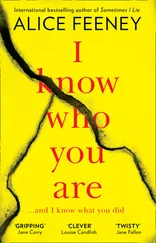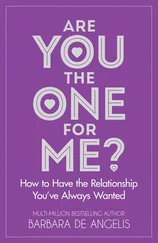“I have to go back to the office,” she said. “Make yourself at home. The fridge is pretty well stocked. Just don’t drink the tap water. There’s drinking water in a cooler in the kitchen. But you probably just want to sleep.”
I nodded.
“So you’re okay if I leave you? My office number is on a pad next to the phone in the kitchen.”
“Sure, thanks,” I said. “I think I’ll just take a nap.”
* * *
I WOKE UP WITH TRAVELER’S DISORIENTATION: the curtains in the room were drawn, and it was so dark that I had no idea where I was. I fumbled for the bedside table lamp. I was in a brass bed with plain white sheets. In Russia. It was mind-boggling. I felt like I was underwater as I stumbled down the hall. The kitchen was large enough to accommodate a long table with six wooden chairs and an overstuffed, flowered sofa nestled by the window. Corinne was perched on that sofa, drinking a glass of scotch. The TV next to her was tuned to CNN.
“She lives!” she said, and muted the television.
“What time is it?”
“Midnight. I just got home. I was stuck at work waiting for a call from my boss in New York. Total nightmare. I’m working in two fucking time zones. Want a drink?”
I shook my head. “Just water,” I said.
“You’d better get used to drinking if you’re going to stay in Russia. Glasses are over the sink.”
I filled a glass from the cooler and joined her on the sofa. “Thanks for letting me stay here,” I said. “I brought you a few things, but I haven’t unpacked yet.” I’d brought her stuff you couldn’t get in Moscow: good coffee beans and several bags of the Twizzlers that Sam said she loved.
“That’s okay,” she said. “Honestly, it’s nice to have the company. It can get pretty lonely.”
“I’m sure.”
“So what’s your plan for tomorrow?” she said.
“I guess I just want to wander around,” I said. “See the city.”
“First I have to take you to register your visa. Everyone has to register within three days. They love to keep tabs on us. The phone? I’m sure it’s bugged. All the phone lines in foreigners’ apartments are. Sometimes I hear this click when I’m talking, like whoever’s listening got bored and hung up. I mean, it can’t be very interesting hearing me talk about hemlines or whatever.” She sipped her scotch. “Russians turn up their stereos really loud so that the listeners can’t understand their conversations.”
I couldn’t tell if she was paranoid or self-aggrandizing or whether her fears of surveillance were grounded in reality.
“Are you hungry?” she said. “You must be hungry. I’ve got some eggs ... and there’s pasta in that cupboard. It’s hard to get good fruit and vegetables here, though. You pay like eight dollars for a tiny bunch of broccoli. Oh, and I should warn you: I keep all my nail polish in the fridge. So don’t be surprised.”
I wasn’t hungry. I couldn’t even think about food. I asked if there was somewhere I could send an e-mail. “My mom’s a worrier,” I said.
“You can send e-mail from here,” she said. “I have an account. There’s a computer in the living room.”
So while Corinne slept, I sat at her desk waiting for a connection. “Come on,” I nagged the modem, but each time it dialed, it was busy. I felt terribly far away.
* * *
IN THE MORNING Corinne told me that her dial-up service was always spotty. “Just call her,” she said. “You can use my calling card if you make it quick.”
I got my mother’s answering machine and was glad to know she was out of the house. After I went off to college, I worried that her loneliness would metastasize and corrode her completely. When she was home, she always answered the phone, and so every time I got the machine, I took it as a positive sign. It was proof that she had gone somewhere, and even though that somewhere was probably just the grocery store, I still clung to the possibility that she might meet someone, that she might fall in love in the produce section of Georgetown’s “social” Safeway. She and some kindly widower might reach for the same grapefruit and their fingers would meet and she would find her way to happily-ever-after. I left a short, reassuring message for my mom. But I had only Svetlana’s e-mail address. Over the summer I had promised to e-mail her when I arrived in Moscow. I studied the return address from the letter she’d sent me.
“Do you know where Petrovka Ulitsa is?” I asked Corinne.
She took the envelope from me. “DDBD,” she read. “That’s the ad agency.”
“An ad agency?”
“Their headquarters are on Madison Avenue. Not sure when they opened an office here.”
“And Petrovka Ulitsa?”
“Right next to the Bolshoi,” she said. “Not far away. Who do you know at DDBD?”
“A friend of a friend,” I said. “She offered to show me around.”
* * *
I CAN’T REMEMBER how many days passed. I finally managed to send an e-mail to Svetlana, but I didn’t hear back from her right away. In the meantime Corinne took me to register my visa at the local office of OVIR. It was my first time on the Moscow Metro. I was not prepared for the pushing and shoving: even seemingly feeble babushkas threw elbows in their efforts to enter the station. But Corinne was right: it was impressive. The stations were even deeper than in Washington, and the escalators were so long and steep that it took nearly five minutes to reach the bottom. I stood next to Corinne and watched the sad faces moving up the other side, grainy and slow as in a silent film. I didn’t see a single smile. Underground, an ornate mini-civilization awaited us, marbled and chandeliered. All the stations proved resplendent. Each one had a theme. Arbatskaya looked like the lobby of an opera house. Ploschad Revolyutsii commemorated the Soviet people with soldiers, collective farmers, writers, and children sculpted in bronze. Mendeleevskaya was named for Dmitri Mendeleev, inventor of the periodic table, and its light fixtures resembled elaborate molecular models. Dinamo was a tribute to sports, with weight lifters and other Olympians carved into the walls. Digital clocks on the platforms showed how long it had been since the last train departed. They didn’t tell you how long it would be before the next train came; it was as if the time were marked not for the convenience of commuters but as a way for the state to boast about its efficiency. The trains were never more than three minutes apart, said Corinne, and in most cases you waited for only one minute. We changed trains twice that day: I learned to push through the crush of people to get on and off. I have always craved personal space—even more so than other Americans, perhaps—but I learned I’d have to do without it. In Moscow, strangers compressed me into a tight, tense ball. I was always surrounded. Bodies were so uncomfortably close that I could see scales of dandruff on their scalps. The trains were quiet, though. There was no chatter, just the occasional “Are you getting off?” delivered in a low voice to anyone near the doors who might impede exit. Most people on the trains were reading. Not newspapers or magazines but actual books. Russians were famously literate, I knew—their reverence for literature is evident in all the writers’ houses that are now museums—but seeing all the books made me happy. As a kid I’d been teased for being bookish.
“They think Americans don’t read,” Corinne said.
“Most of them don’t,” I said.
* * *
DURING THOSE FIRST FEW DAYS, I made halting forays around the center of the city. I had a map, but I was self-conscious. Unlike in cities I’d visited in Europe, I didn’t see other tourists. Every time I opened my guidebook, people stared. I’d never felt stranger. Most people were in dark colors—gray and black—and the smallest splash of something more vivid labeled me alien. I had a bright orange scarf, and though the wind was already brisk in September, I often left the scarf at home so I wouldn’t draw attention to myself. But even without it, my clothes set me apart. My wardrobe was decidedly tomboyish and collegiate—corduroys and cashmere crewnecks, mostly. I couldn’t fit in.
Читать дальше












